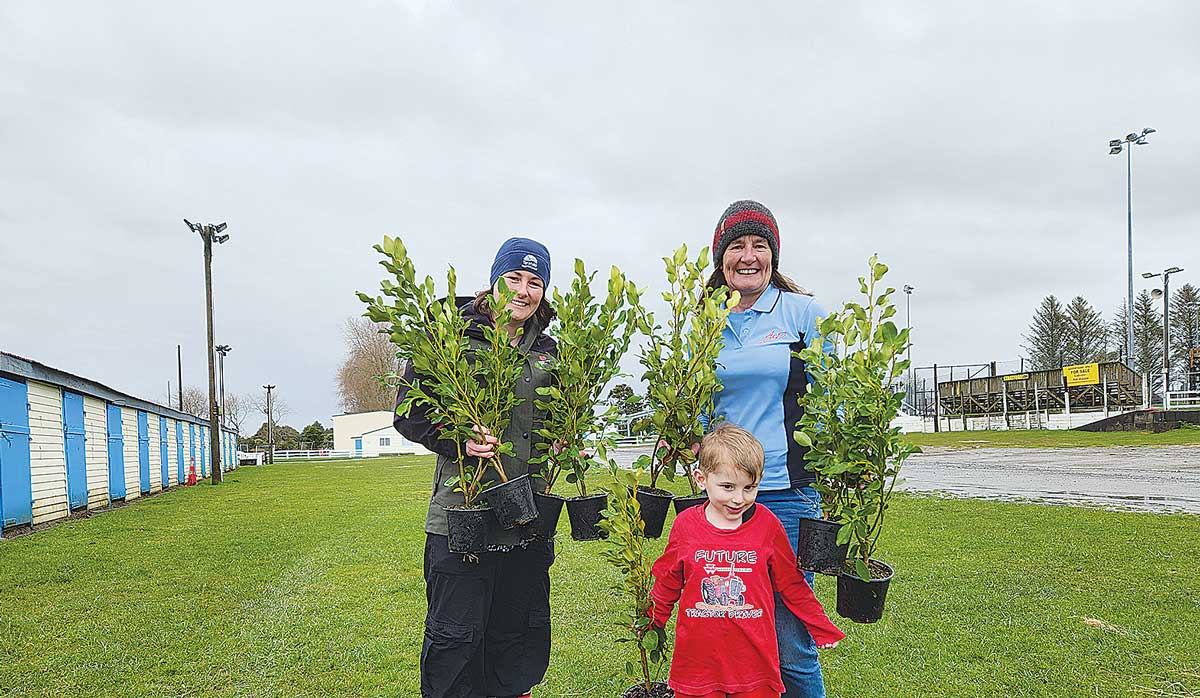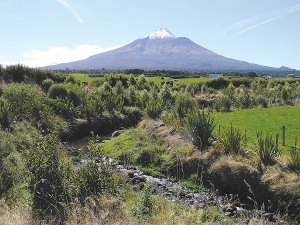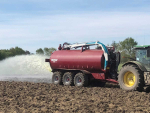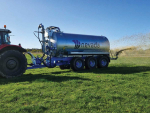It all started with one native plant. It was 1996 and Taranaki Regional Council had just launched its ground-breaking riparian management programme to help protect the region's waterways.
That first plant left the depot and was planted on one of Taranaki's hundreds of rivers and streams. This marked the beginning of one of New Zealand's most successful collaboration programmes between farmers, the community and the counci to improve the quality of freshwater and ecosystem.
Some 28 years later, a major milestone has been reached with the eight millionth plant now planted by a farmer on a riparian margin.
The programme is the largest revegetation project in the country on private land with an incredible 5385km of planting across the ring plain.
TRC land services manager Don Shearman, who started running the programme when it was launched, says the council is proud of the scheme's positive impact, not only on water quality, but on the 'transformation of the landscape' and on the region's ecosystems and biodiversity, particularly the establishment of new native habitat.
"We're delighted to have reached another landmark with the number of riparian plants now distributed to farmers in Taranaki at more than eight million," says Shearman.
"We couldn't have achieved this result without working together with the farming community and all the other stakeholders who have an interest in freshwater quality. Collaboration and clearly defined roles have been the key reason why the region now has thousands of kilometres of new riparian planting as well as thousands of kilometres of new fencing.
"It's by far the most successful voluntary fencing and planting programme in the country without ratepayer subsidies and we believe it's made a significant improvement to ecosystems and water quality.
"We're also looking forward to seeing further water quality improvements when those eight million plants have matured and the remaining margins have all been fenced and planted adequately.
"However, we know with the Government's new water quality standards, there's still a huge amount of work to be done in this area, but the riparian programme has given us a strong platform to build on."
Landowners in the programme work closely with the council's Land Management Officers (LMO) who develop free, property-specific riparian management plans and provide recommendations and technical advice on where to fence and how to plant waterways with the right plant in the right place.
Through a tender system, contracts for growing native plants in bulk are awarded to commercial nurseries a year in advance of planting so that they have time to grow.
They are then sold on to farmers at wholesale prices for planting the following winter. To ensure the system remains efficient, the council has to ensure the right number of plants are grown each year. Therefore, landowners must now order them a year in advance and pay a small deposit to secure their order.
"We've been talking to our community about freshwater as we look to create new Land and Freshwater Plan for Taranaki and we've had strong support for continuing the programme," adds Shearman.
"Our ambition is to have riparian planting, where appropriate, and fencing on all rivers and streams in the ring plain and that's something we'll continue to work to achieve in the future.
"We started the native plant scheme with a single plant 28 years ago and now we're at 8,142,487 plants and this doesn't even include all the plants that farmers have bought independently or grown themselves. That's an incredible achievement for our Riparian Management Programme."
 |
|---|
|
TRC riparian team leader Holly Laundon, left, with son Charlie, 4, and mum Vicki Jagersma at the Stratford A&P Showgrouns, one of the Council's plant depots.
|
The focus of the programme is currently to carry out audits on all existing riparian management plans to ensure the existing plantings and buffers are working as intended. Landowners can contact their LMO at any time for advice and information. For more details or to order plants for the 2026 winter planting, email This email address is being protected from spambots. You need JavaScript enabled to view it. or call 0800 736 222.
Fast Facts
- In order to launch the programme, the council launched the riparian management strategy in 1993.
- This established a buly supply of plants with 14,000 available when the scheme started three years later.
- The riparian scheme hit the two million-plant milestone in 2011.
- A record 985,239 plants were put through the scheme in 2021, with assistance from the Government's Jobs for Nature programmes.
- Around 7000km of new fencing has been erected by landowners to protect new plantings and to exclude stock from waterways since the scheme was launched.
- 99.5% of Taranaki's 1600 dairy farms have riparian plans.
- It has been recognised with a Green Ribbon Award from the Ministry for the Environment, and awards from the Geospatial World Forum and the NZ resource Management Law Association.


















